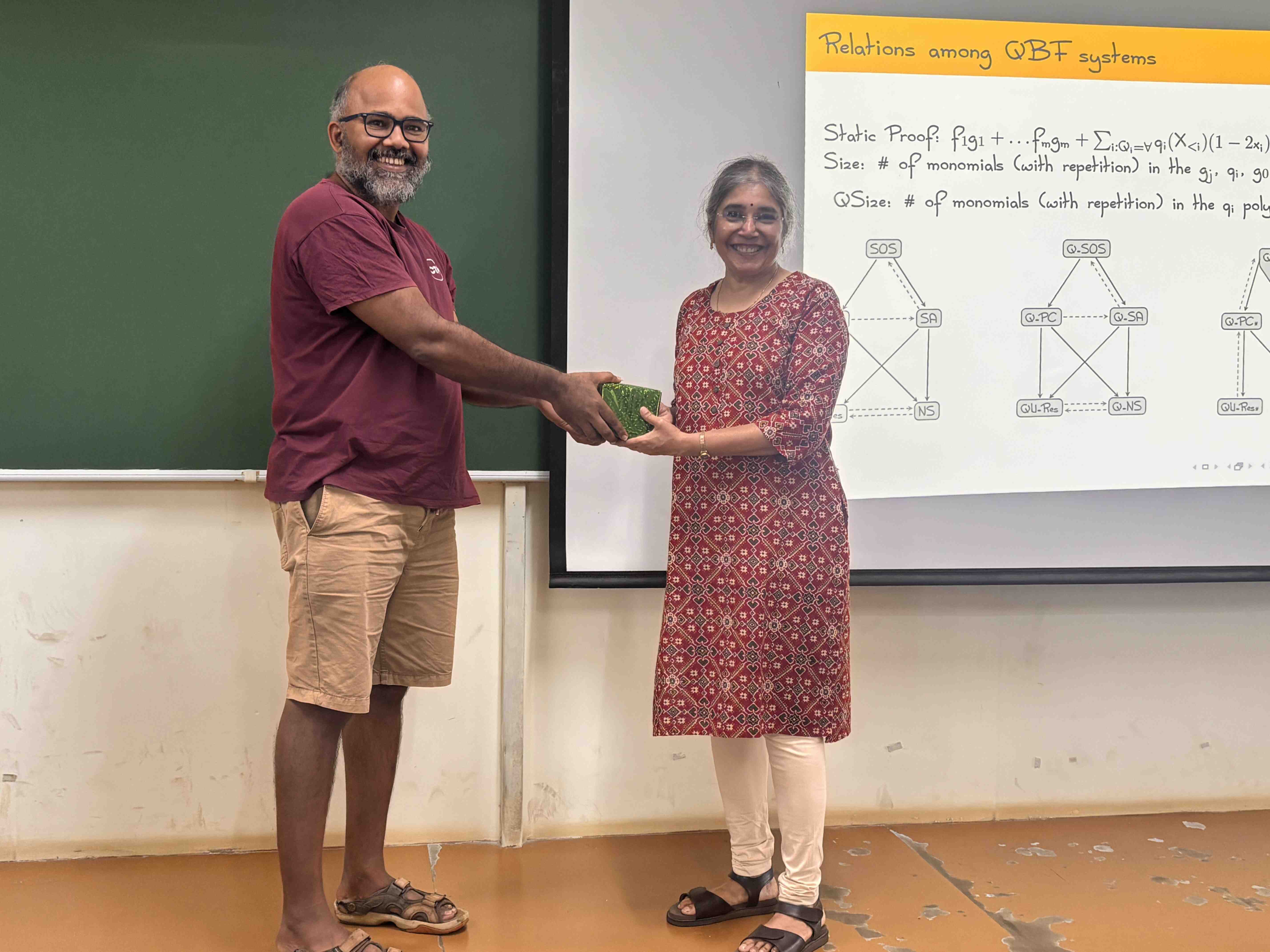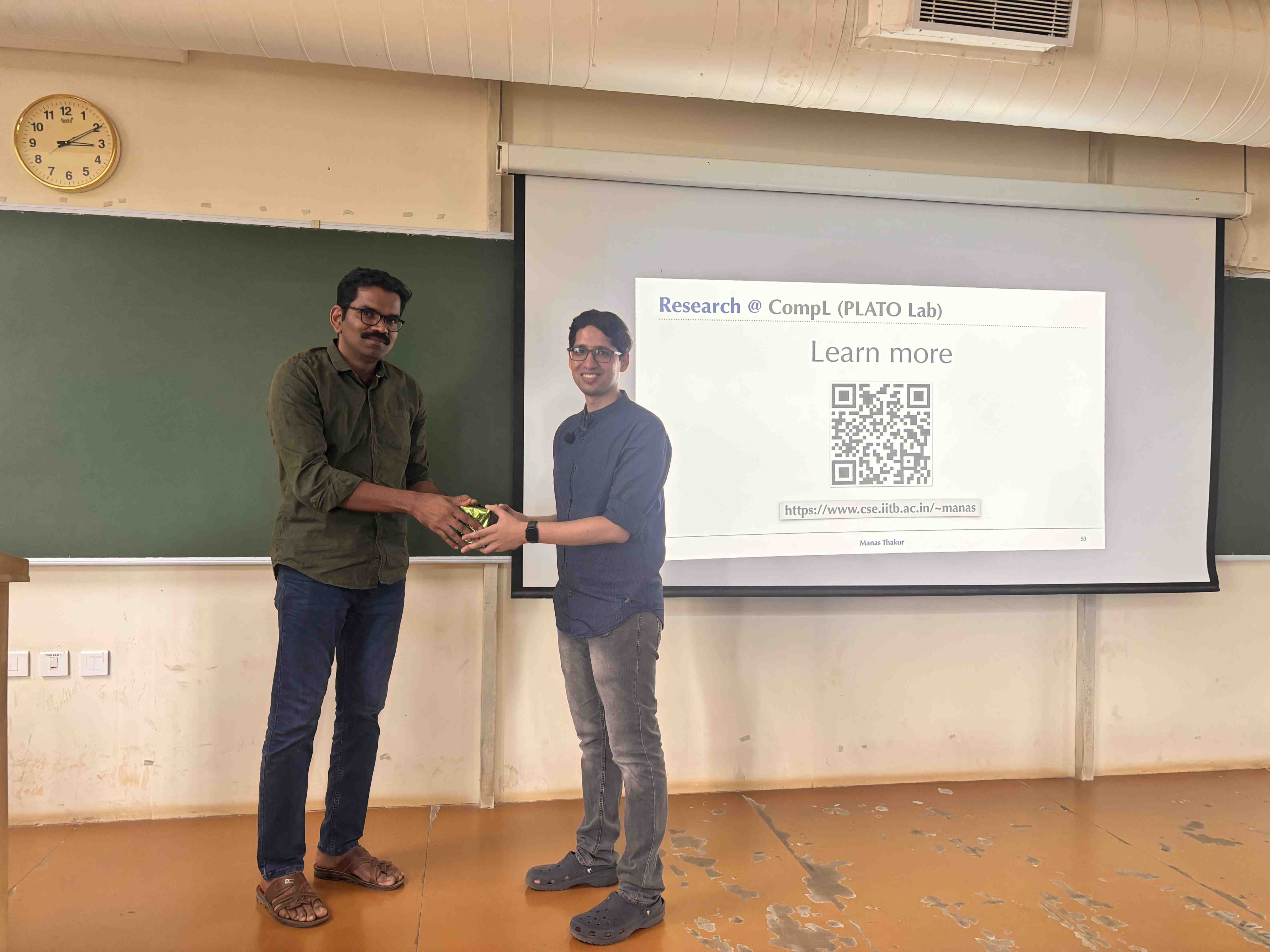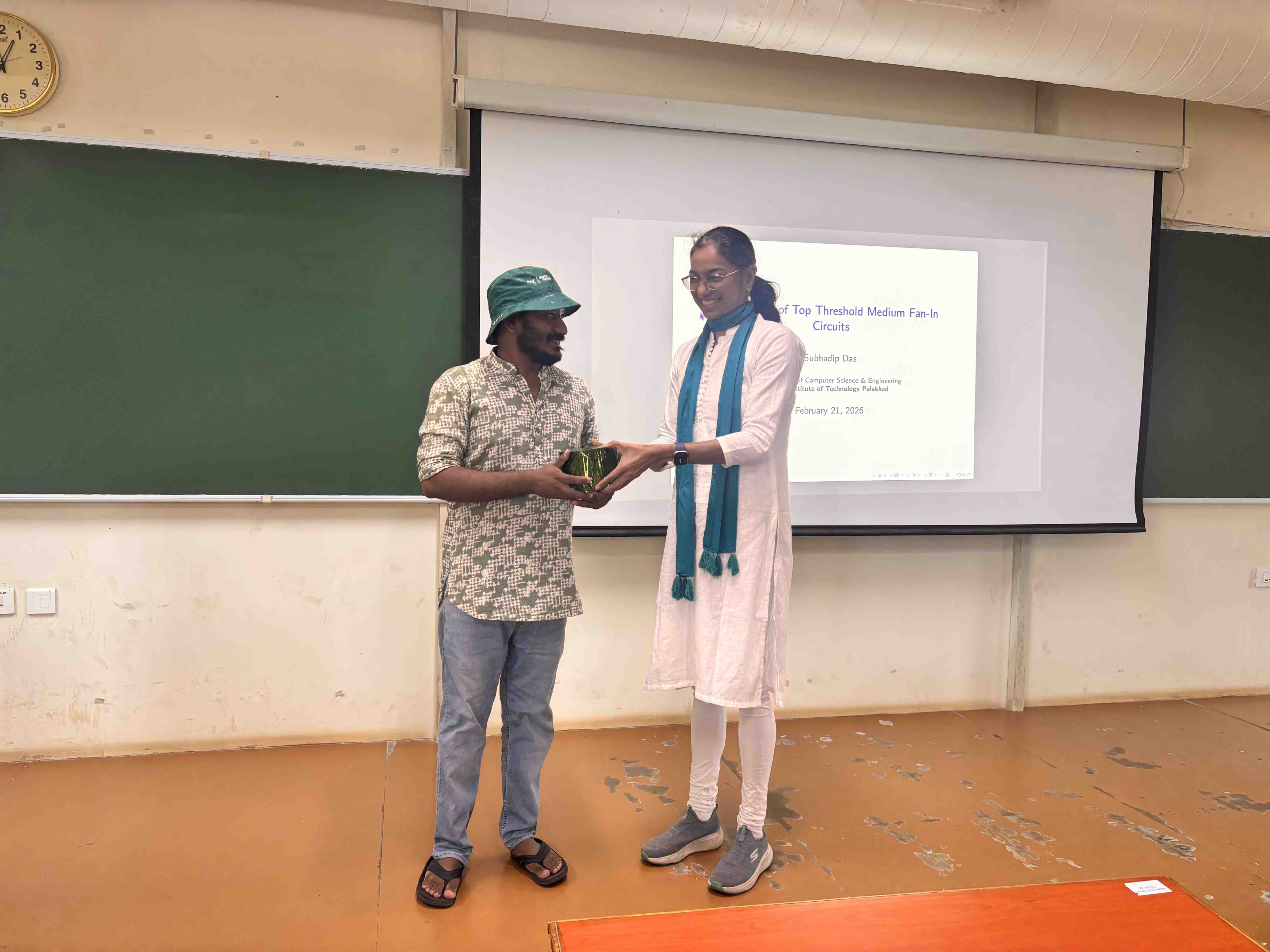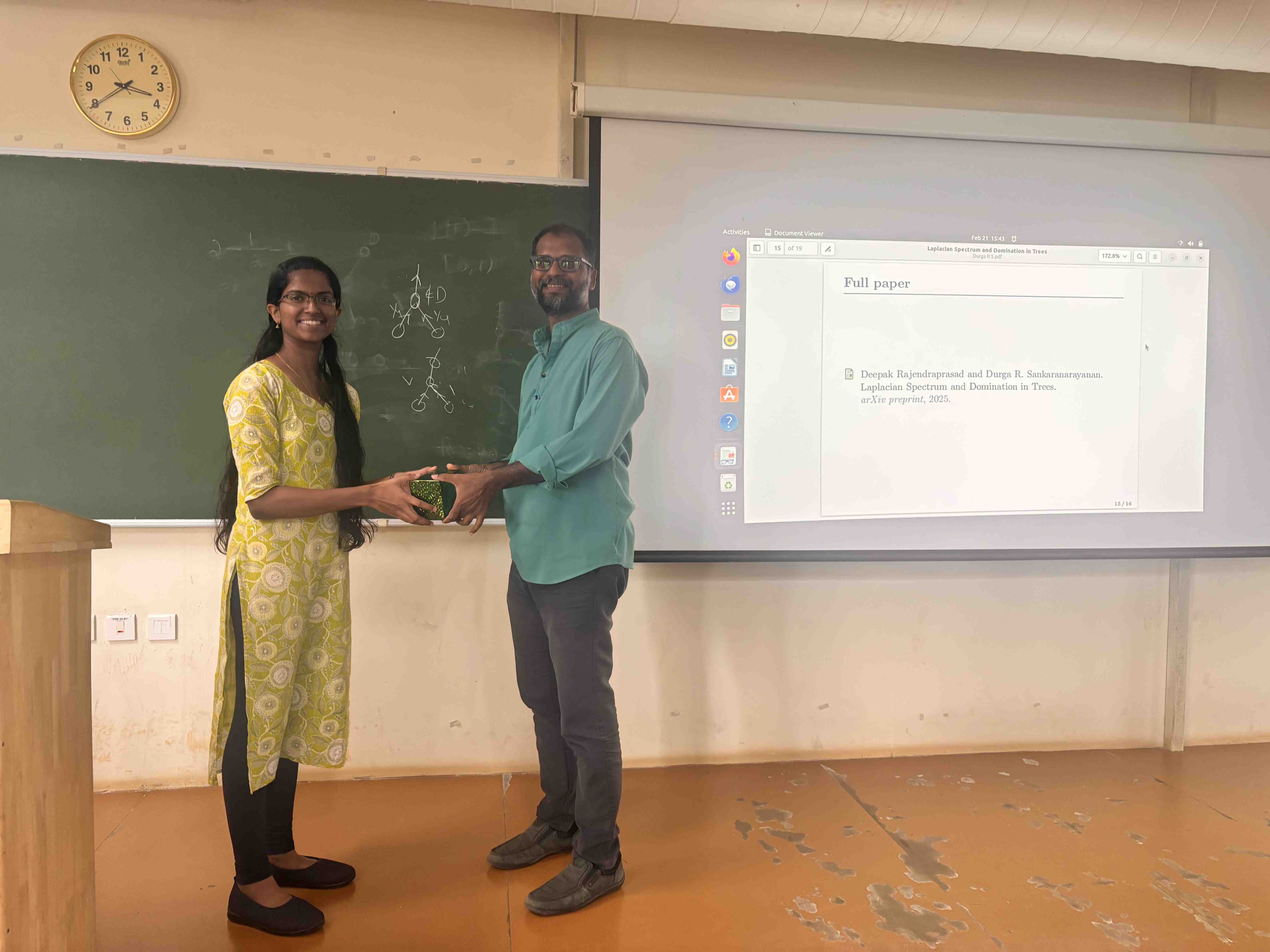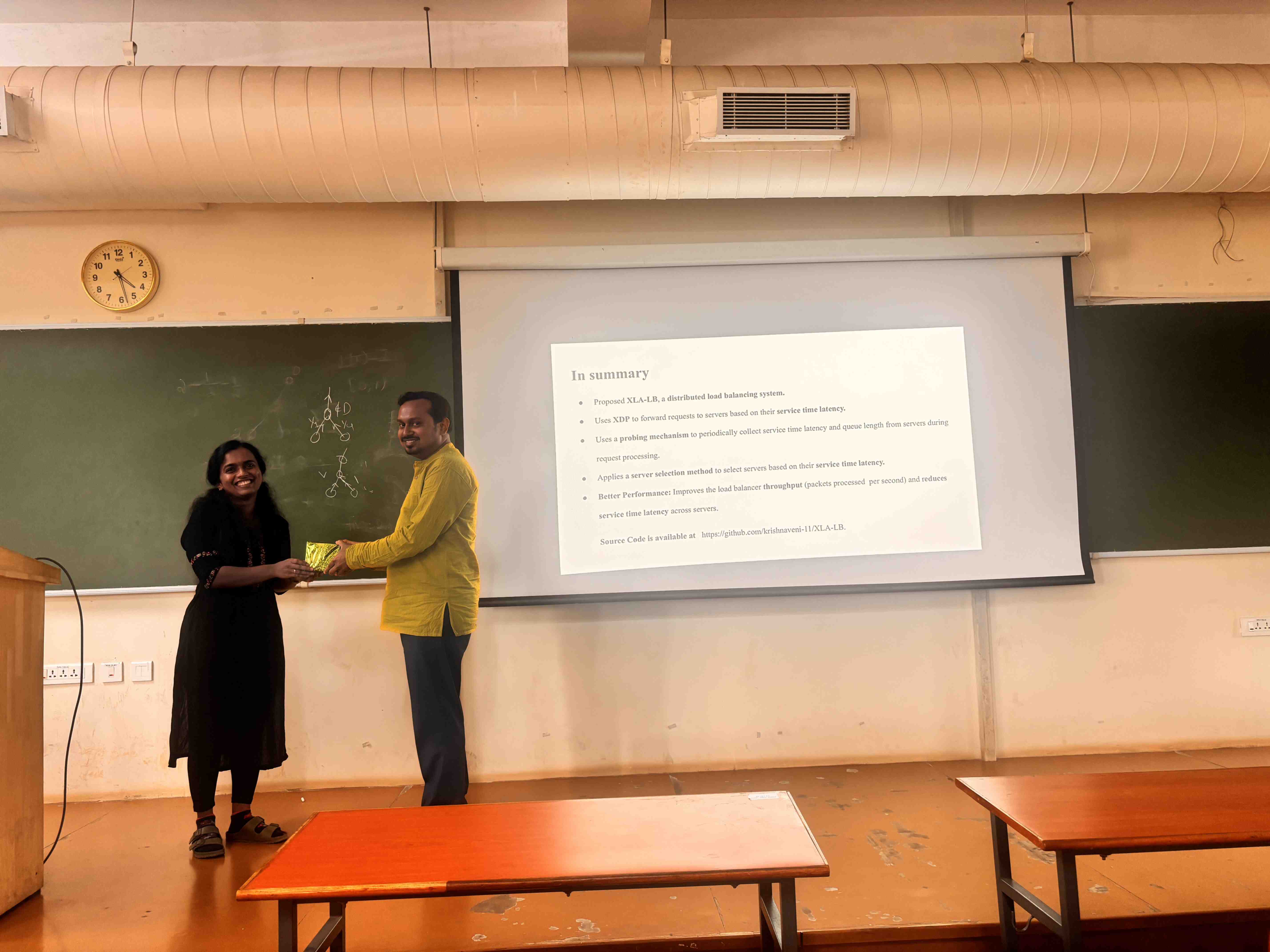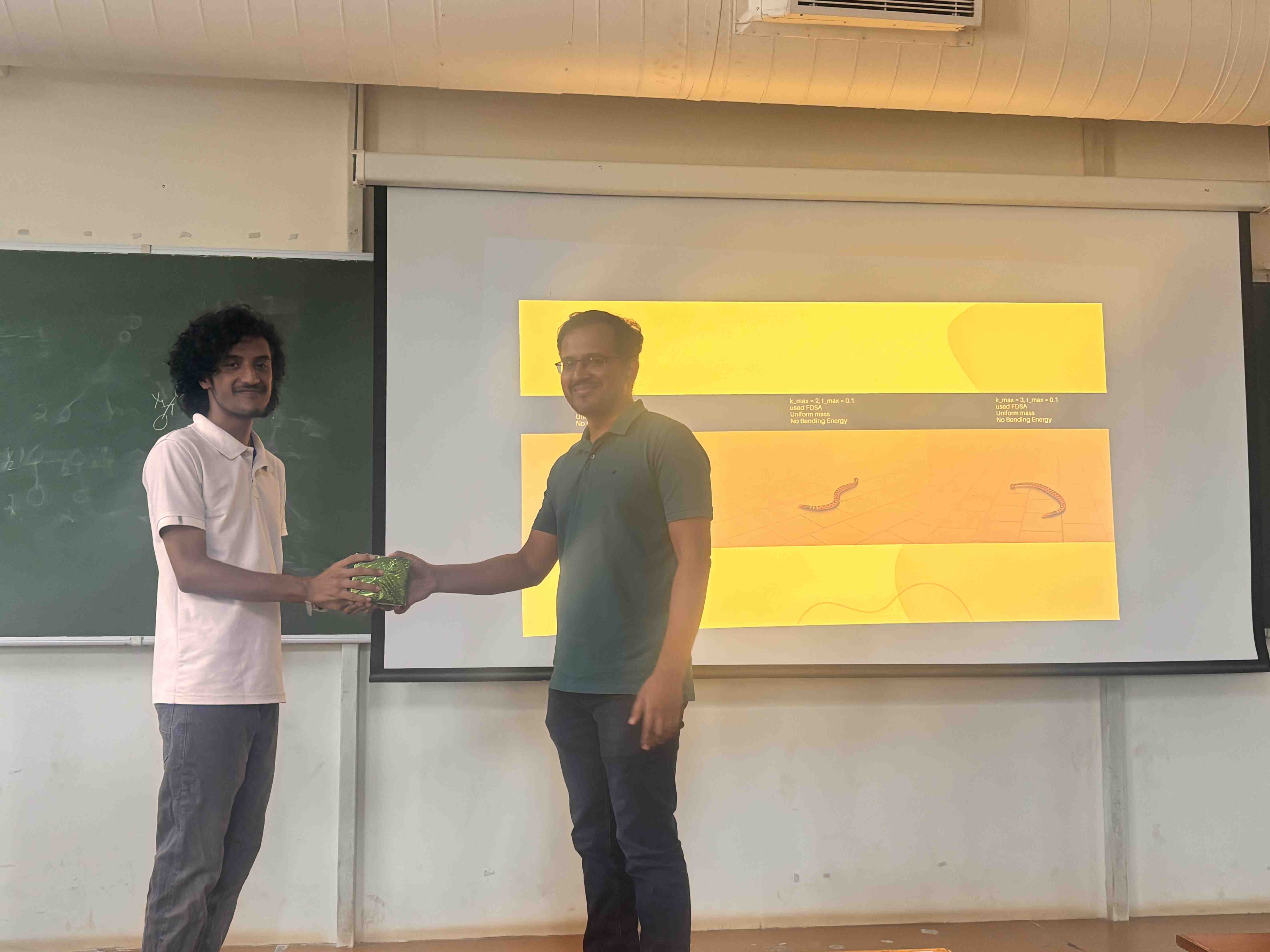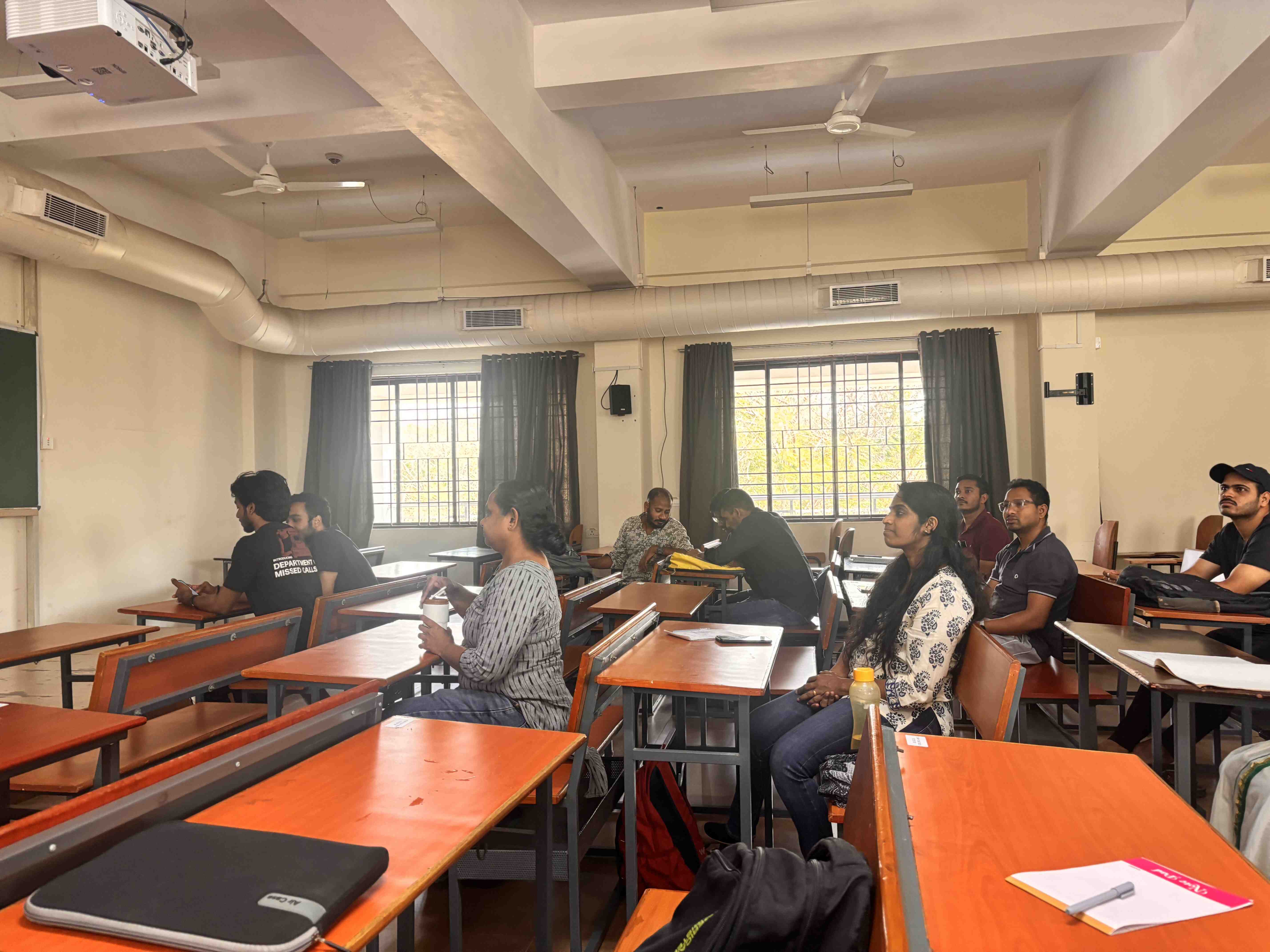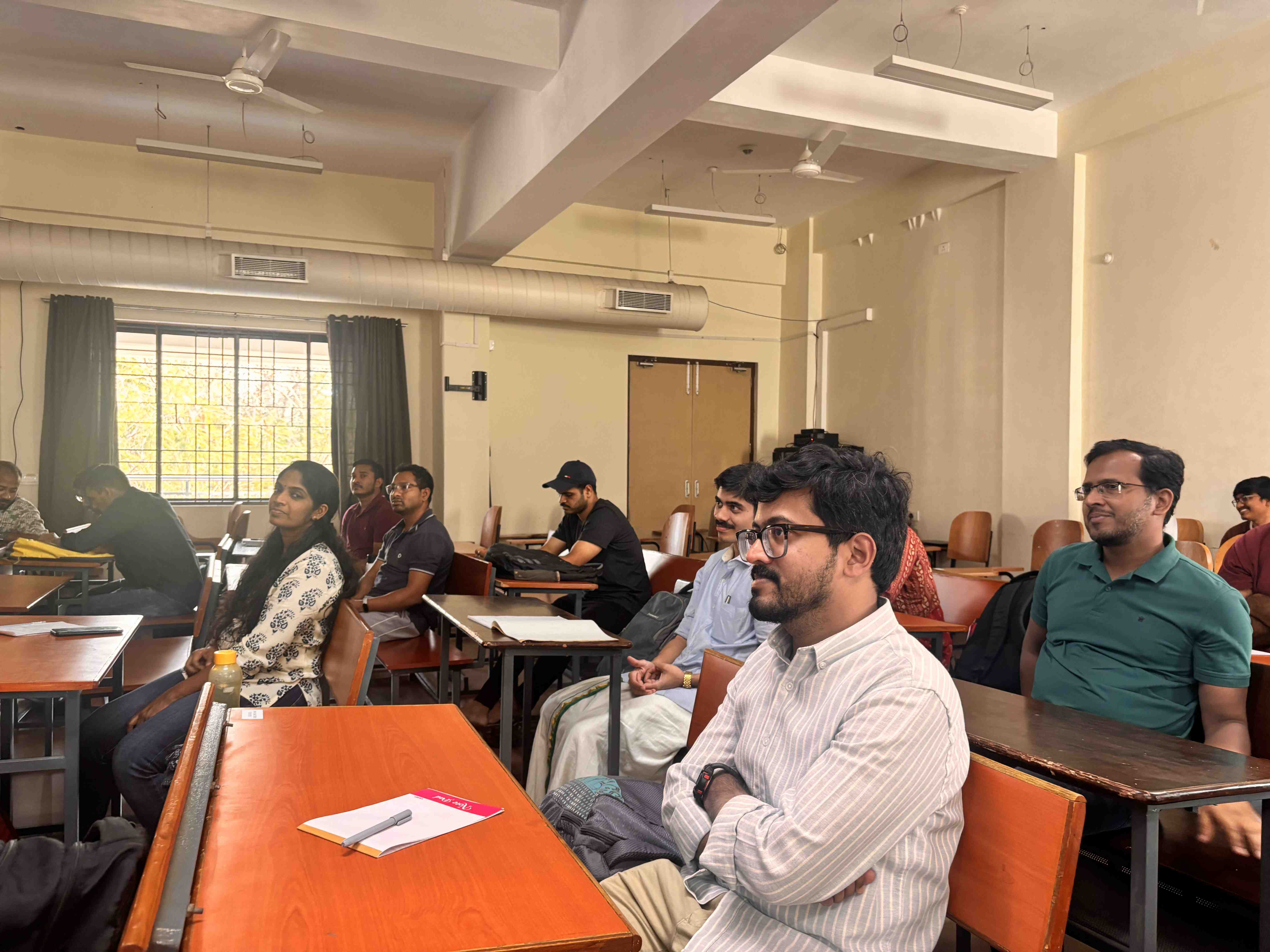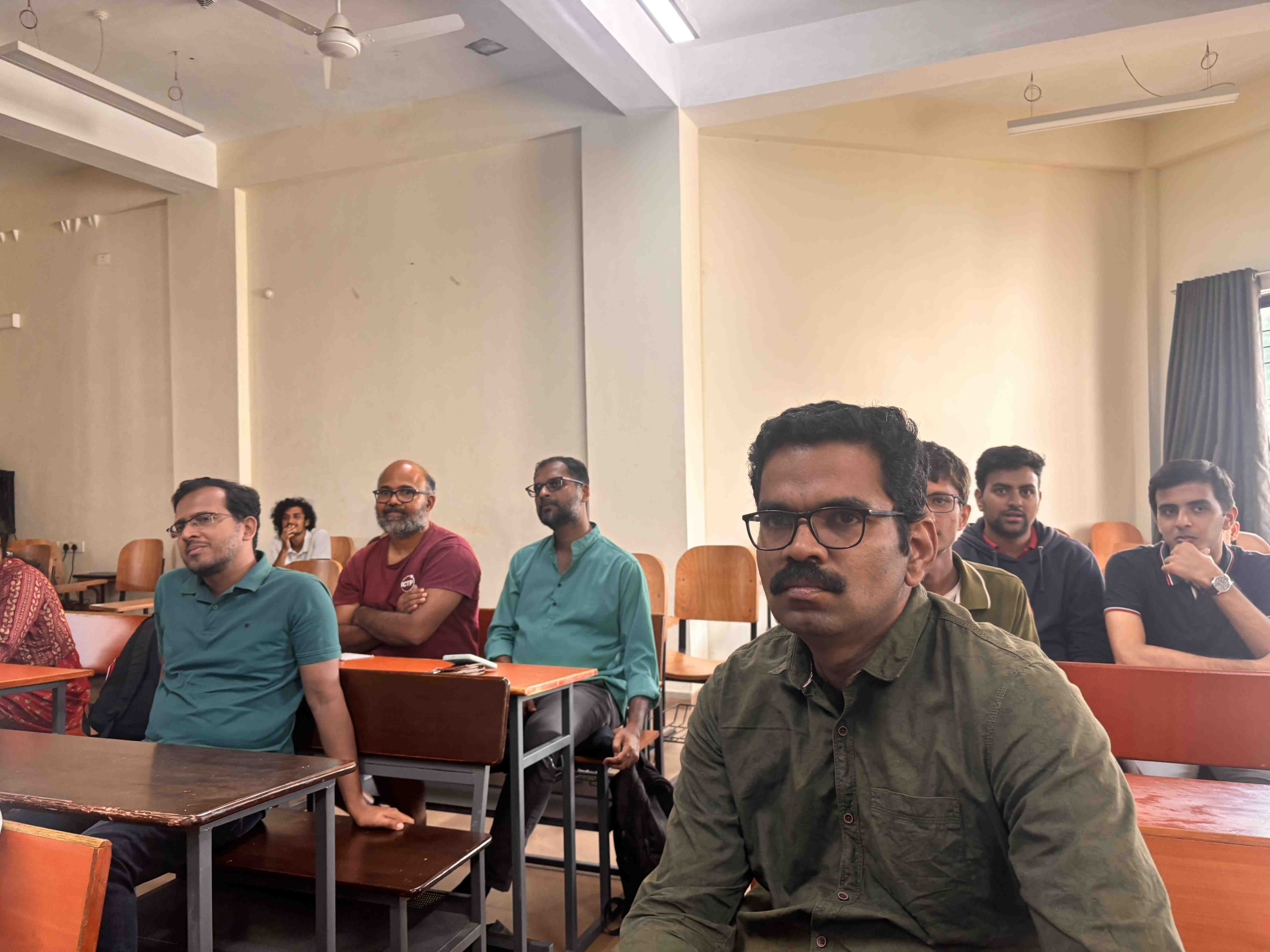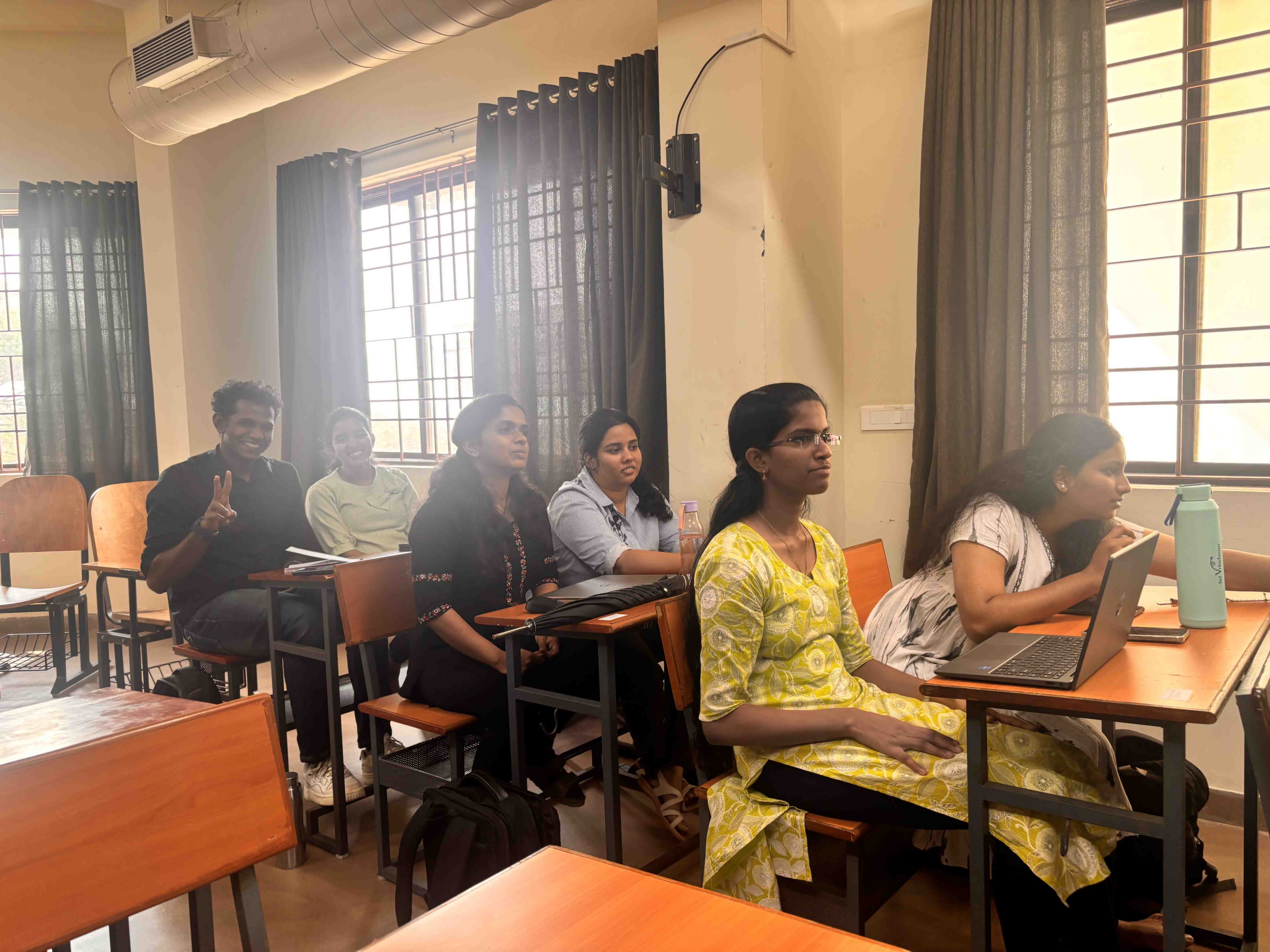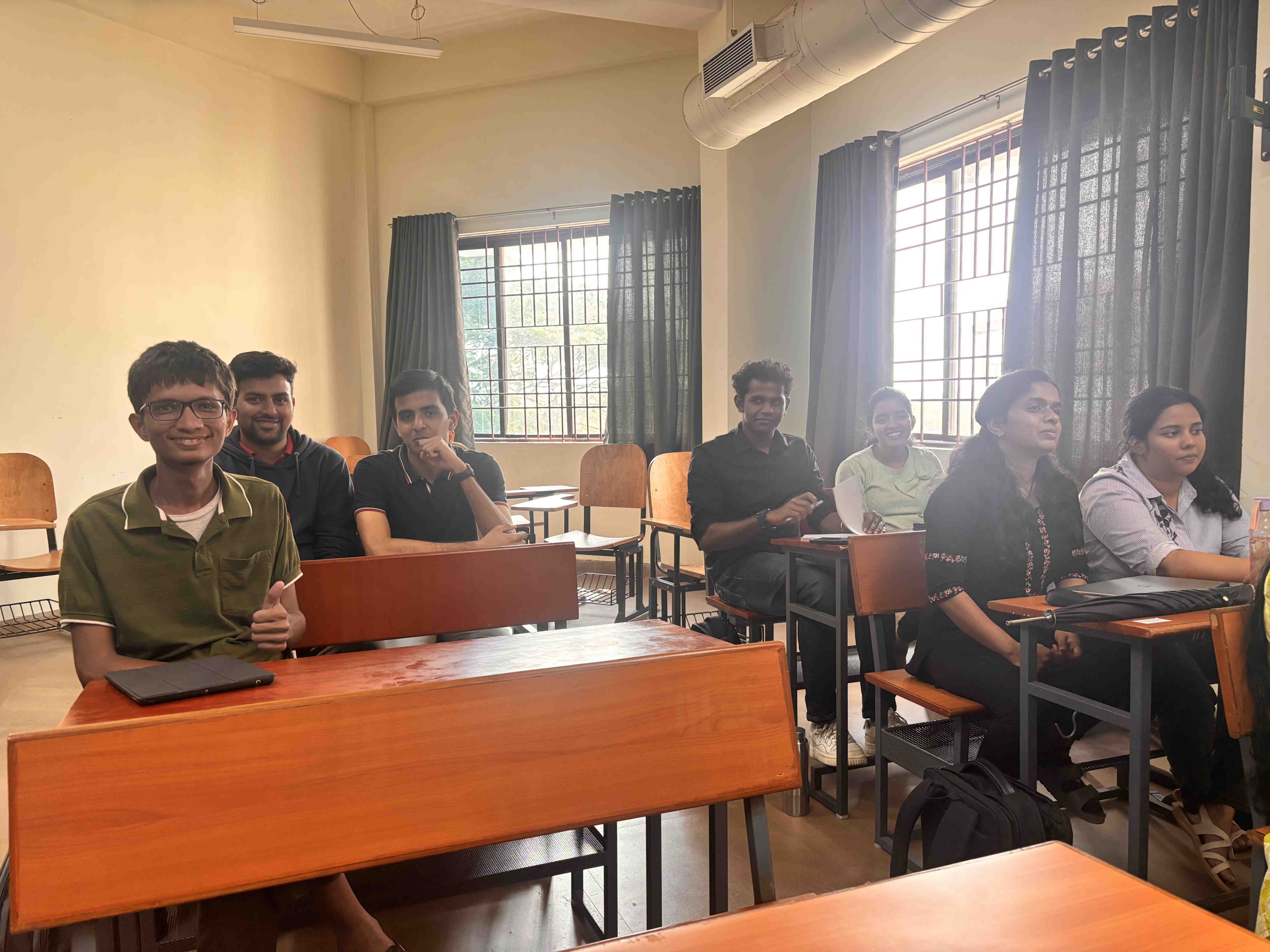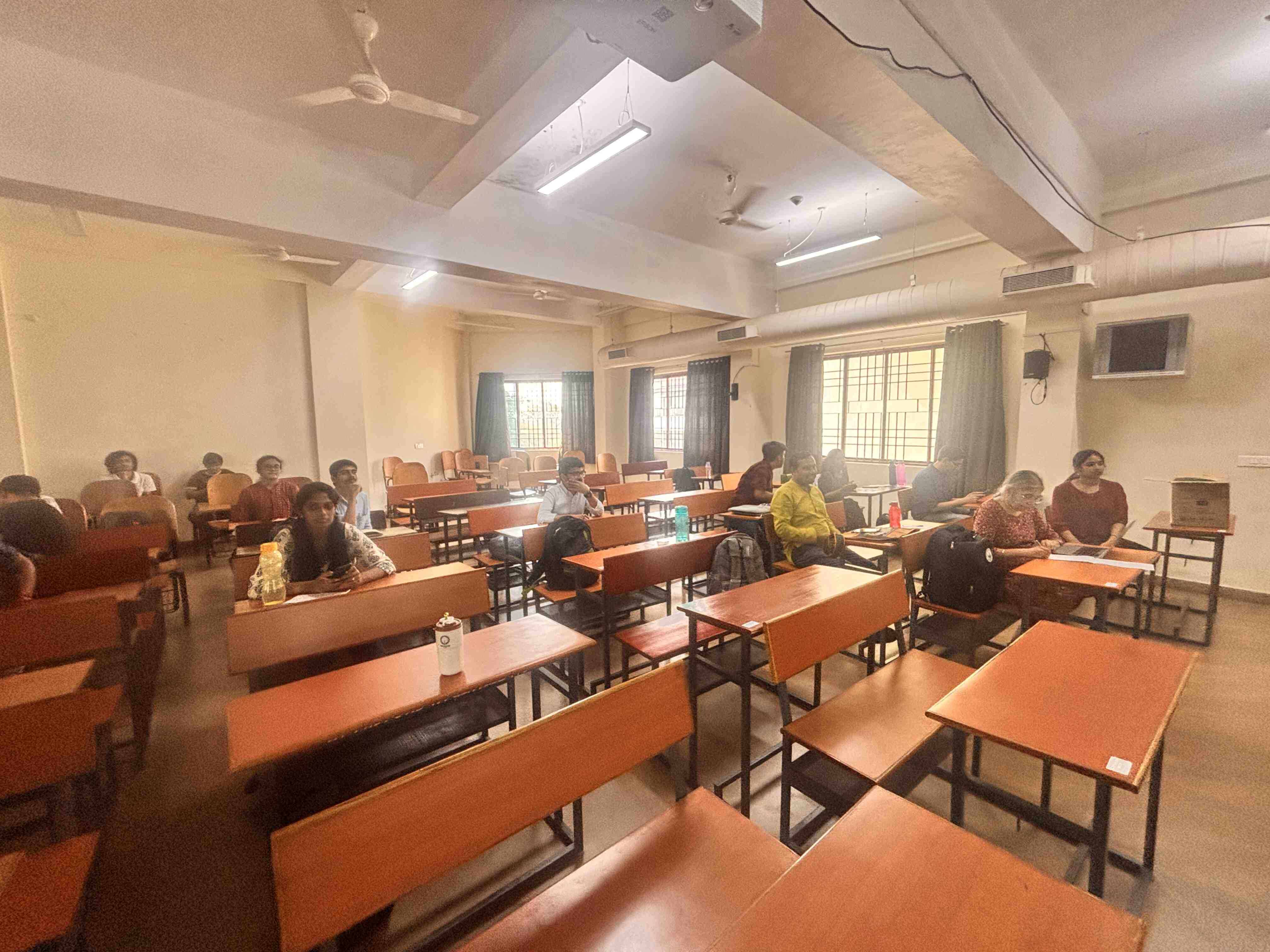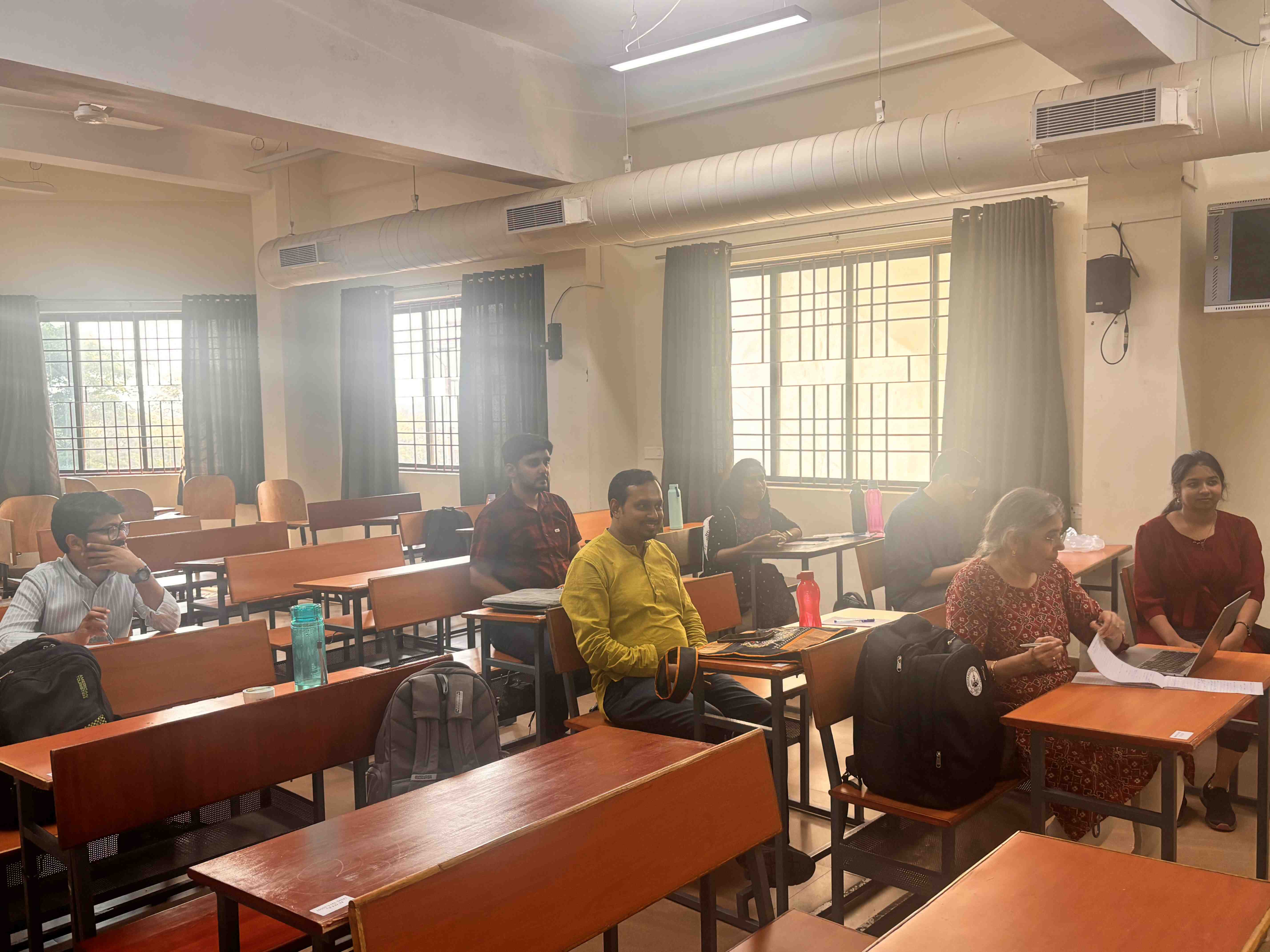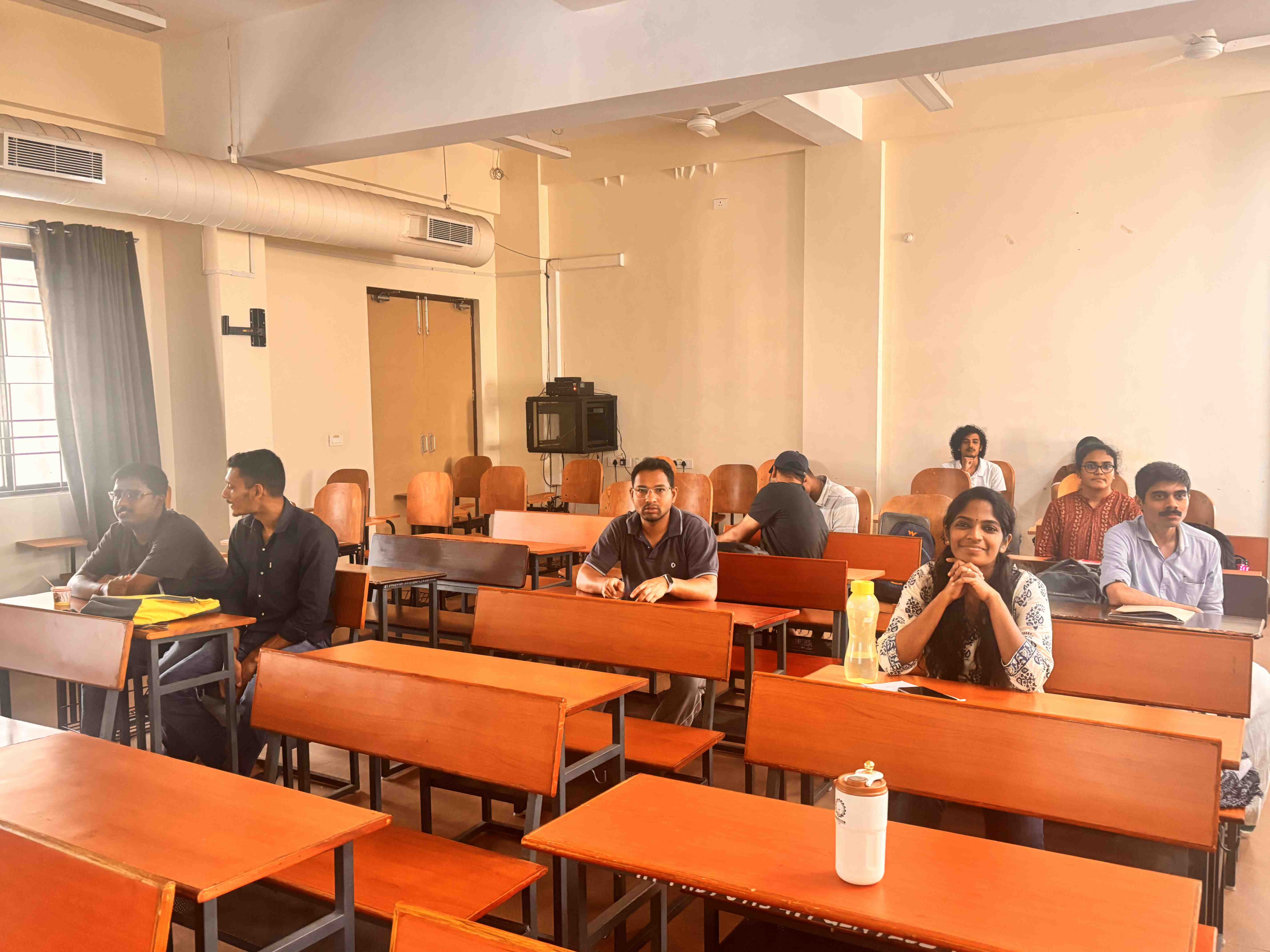This page lists the research symposium conducted by the Department of CSE, IIT Palakkad. The symposium is usually a full day event consisting mainly of research talks on completed or on-going research problems by the research scholars (and occasionally by faculty) of the department.
See here for past instances of the CSE research symposium.
Program schedule for Research Symposium 2026
Coordinates
- When ? - 21th February 2026 (Saturday)
- Where ? - Room 305, Samgatha, Nila Campus
- Coordinators - Pratik Ghosal
Talk Schedule
| Time | Title | Speaker |
|---|---|---|
| 10:30 AM - 10:40 AM | Welcome Talk | Prof. Piyush Kurur (HoD, CSE) |
| 10.40 AM - 11:40 AM | Semi-Algebraic Proof Systems for QBF | Prof. Meena Mahajan |
| 11.40 AM - 12.00 PM | Tea Break | |
| 12:00 PM - 12:30 PM | Student Talk 1: Space Complexity of Reachability in Simple Path Graphs | Chandana S |
| 12:30 PM - 01:00 PM | Student Talk 2: Complexity of Top Threshold Medium Fan-In Circuits | Subhadip Das |
| 01:00 PM - 02:00 PM | Lunch Break | |
| 02:00 PM - 03:00 PM | From Precise Analysis to Efficient JIT Optimization - The Story of an Object Transformed by CompL | Prof. Manas Thakur |
| 03:00 PM - 03:30 PM | Student Talk 3: Laplacian Spectrum and Domination in Trees | Durga RS |
| 03:30 PM - 03:50 PM | Tea break | |
| 03:50 PM - 04:20 PM | Student Talk 4: XLA-LB: Latency Aware Load Balancing Using XDP | Krishnaveni |
| 04:20 PM - 04:50 PM | Student Talk 5: A Differential Geometric Approach for Limbless Soft-Body Locomotion | Utpal Khanal |
| 04:50 PM - 05:00 PM | Vote of Thanks | |
Semi-Algebraic Proof Systems for QBF
Abstract: A proof of a statement convinces the person/entity addressed that the statement is true. Intuitively, a good proof is short, and easy to verify. A formal proof must convince an automated checking program (that may have limited resources). Proof complexity aims to understand the strengths and limitations of different formal proof systems.
In this talk I will briefly describe the setting of propositional proof complexity, and then move to quantified Boolean formulas (QBFs). Determining the truth of such formulas captures the ease and the difficulty of computations that are limited to polynomial space. I will describe some recently introduced semi-algebraic proof systems for QBF, and discuss how lower bounds are obtained in this setting.
Speaker: Prof. Meena Mahajan (IMSc Chennai)
From Precise Analysis to Efficient JIT Optimization - The Story of an Object Transformed by CompL
Abstract: Object-oriented programming and just-in-time (JIT) compilation are two pillars of modern large software systems. Yet, combining them effectively poses challenges while designing performant systems: object allocation, memory access, and garbage collection introduce significant overheads, while JIT compilers must keep program analysis lightweight and fast. This talk explores how precise program analysis — traditionally considered too expensive for JIT settings — can enable aggressive memory optimizations in modern JVMs without sacrificing efficiency.
I will present our recent work on static-analysis – guided optimistic stack allocation, supported by dynamic heapification to ensure correctness in the presence of language and runtime dynamism. I will also discuss how speculative JIT information can improve the precision of statically computed results. Together, these techniques demonstrate how ahead-of-time analysis and just-in-time compilation can be combined to achieve both precision and efficiency, leading to reduced garbage collection, improved performance, and new opportunities for memory optimizations in managed-language runtimes.
Speaker: Prof. Manas Thakur (IIT Bombay)
